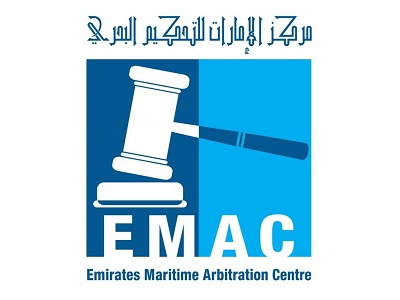With so many individuals having a stake in the future of shipping in Dubai, calls are growing for an increase in the sophistication of the legal machinery governing the emirate, with many participants seeking industry-specific improvements to dispute resolution. Dubai Maritime Agenda, a conference organised last week by Dubai Maritime City Authority, sought to address the issue head on.
An important plank of Dubai’s success as a legal centre has been the establishment of a courts system under the Dubai International Financial Centre (DIFC), a free zone administered under English law. Mark Beer, chief executive and registrar, DIFC Courts, can claim that the DIFC system is one of the top three commercial courts in the world.
Beer cited a report published by Menon Business Economics in May that found that industry experts expected Dubai to be the world’s seventh leading maritime centre by 2020. But it is clear that more needs to be done to enhance mediation and conciliation for the emirate’s shipping community.
“Following consultation with shipping industry representatives including a number of regional maritime law firms and as part of a strategy to increase confidence in the UAE market, the Dubai Maritime City Authority has recently announced an initiative to establish a specialised maritime arbitration centre known as the ‘Emirates Maritime Arbitration Centre’ (EMAC),” wrote Patrick Murphy, a partner at Clyde and Co. in Dubai, in a commentary published in September.
Despite the success of the DIFC courts, the specialisation of the shipping industry made arbitration a necessity. “The courts do an excellent job of dealing with maritime disputes, just as you’d expect. Courts focus on law. But so often, maritime disputes are about more than law,” said Beer. “The ability to have arbitration outside of the law will allow for better, faster and cheaper resolution of disputes.”
Participants at the conference expressed concern about the ability of EMAC to enforce judgements. “No court in the world is more connected than the DIFC Courts. You can take a judgement from DIFC Courts to more places around the world than any other court, because we realise that converting a court judgement to cash is what people want,” said Beer.
“Enforcement is absolutely at the heart of a successful arbitration centre.”
Richard Briggs, executive partner at Hadef and Partners, Dubai, doffed his cap to fellow panellist, Edward Newitt, of Holman Fenwick Willan, whose firm, he said, had managed to enforce a New York Convention charterparty award, where there was no signed charterparty.
“This is completely new ground here, where you have got an agreement to arbitrate which is unsigned, to be able to bring that award here and enforce it contrary to the provisions of the civil procedure under the New York Convention. Enforcement is moving ahead very fast here. It’s happening through the DIFC and it’s happening through the UAE courts,” Briggs said.
One comment from the floor pointed up the lack of arbitration provisions in national oil company contracts for the offshore sector. The expert view is that it would be a challenge for EMAC to get the UAE government sector to bow to the provisions of arbitration. Regional governments would certainly view willingness to submit to arbitration as raising taboo questions about sovereignty.
“One of the most important things about getting an arbitration centre up and running is the director general of the centre,” Sir Anthony Coleman, a chartered arbitrator and fellow of the Chartered Institute of Arbitrators, told the conference, referring to the need for a dynamic individual who would help EMAC out of the blocks faster than had been the case in other jurisdictions. Beer said candidates for the post were already under consideration.
Senior partner at local law firm Al Tamimi and Co., Emirati Essam Al Tamimi, echoed this sentiment, saying that the mere fact of the institution’s existence would not be enough to generate confidence. “Dispute resolution is a big concern to any investor. If [EMAC is] badly managed, it will stay on the shelf. If it is well managed it will be an internationally renowned centre,” he said.
Murphy said that while “EMAC Rules” were at an advanced stage of drafting, the exact date on which they would come into force with the launch of EMAC had yet to be announced. But it is clear that the momentum exists and that a majority of shipping-industry participants in the Middle East are behind it. Beer believes it will become the “gold standard”.
Copyright Ships & Ports Ltd. Permission to use quotations from this article is granted subject to appropriate credit given to www.shipsandports.com.ng as the source.
